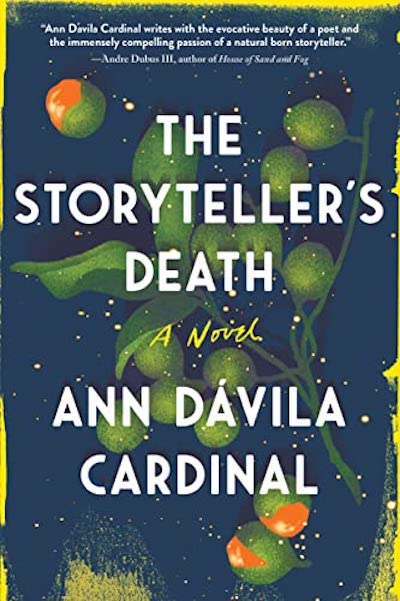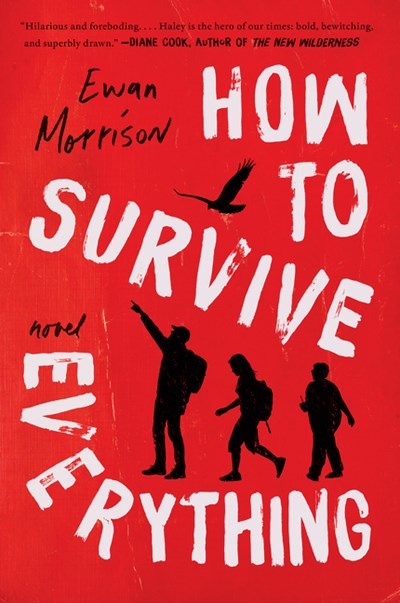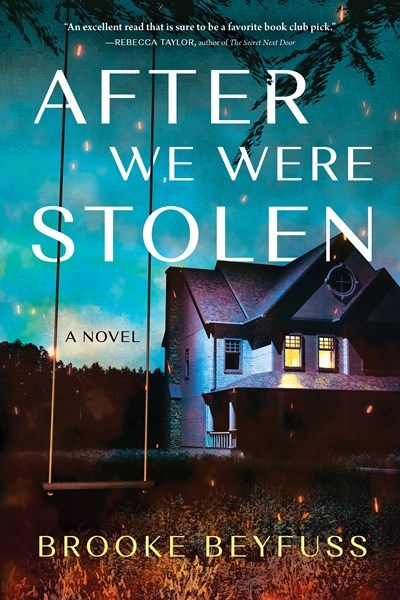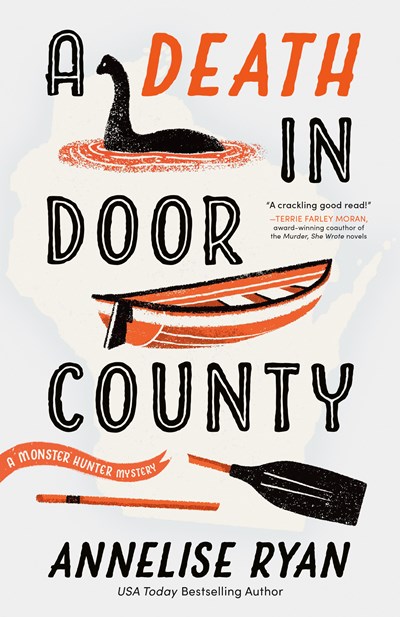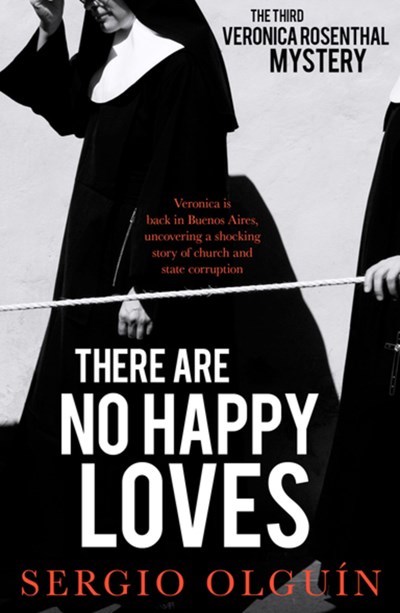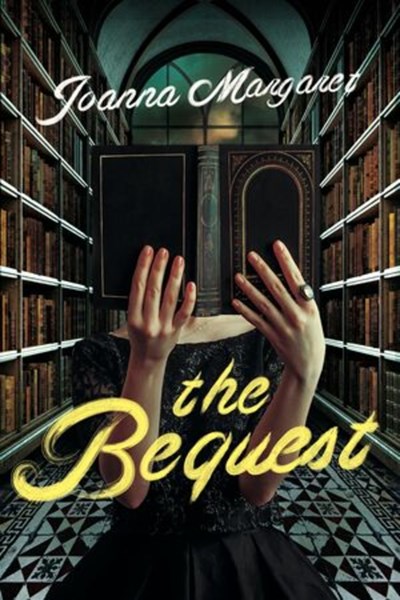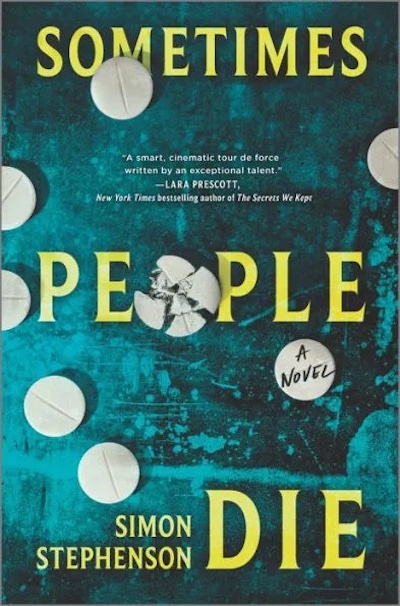Fraught connections between different worlds hold together this coming-of-age tale: connections between Puerto Rican families in the United States and their homeland; between the past and the present; between the real world and one made of stories. As the book opens, its shy protagonist, Isla Larsen Sanchez, is visiting her mother’s native Puerto Rico. Back in New Jersey, “everyone [looks] so colorless, like the underbelly of a fish,” but at least there she can do her own thing. The island, however, is overflowing with color but also with cheek-pinching aunts who expect proper behavior from a young lady with “not one drop of blood…that is not European.” Over the years, as she spends every summer in Puerto Rico, Isla comes to realize that her oh-so-pure blood may have given her…well, she’s not so sure it’s a gift. She sees visions of tales the cuentistas, storytelling women in her family, have told her—but only after their deaths. When one story involves a murder, and Isla finds that she can be physically hurt by weapons in the visions, readers find themselves dropped into a combination of magical realism, terror, and mystery, all wrapped in a shroud of family secrets and dubious honor. This rich story about stories can work as a crossunder, meaning it can be enjoyed by young adults as well as adult readers; Toni Morrison fans will particularly enjoy the otherworld-tinged drama
Review
Meredith Morris-Dale used to work with her husband, John. Now they’re divorced and moving on, their daughter grown and out on her own and John retired and pursing his passion as an artist. Meredith’s job needs John for one last gig, though. That wouldn’t be too unusual except that the task is for him to re-up in the CIA and re-establish contact with a scientist who’s sabotaging Iran’s effort to build a nuclear bomb. John was suspended from “the company” for an operation that went wrong, the traumatic details of which are slowly revealed; he also doesn’t want back in, but Cerberus, as the Iranian scientist is known to the CIA, won’t deal with anyone else. Soon John’s on a perilous journey to find Cerberus, a journey on which he’s pursued by other global bad guys who are using him to pin down details of the international spy network and move up in the superpower ranks. From the opening, this is like the best kind of action movie—fast moving, smart subplots, hair-raising escapes from death. Adding to the action is John’s decency toward the good people he meets and ruthlessness with all the rest. If you’ve ever wondered what a much scruffier James Bond would be like, this is the book for you.
They’re back! The quirky duo of sort-of psychic Leda Foley—she’s also a travel agent and sometime chanteuse—and Seattle P.D. detective Grady Merritt reunites to find two missing people. Leda is approached by a man whose sister has gone missing for a month—driving a bright-orange antique Volvo and with $30,000 in cash—and hopes that Leda can use her psychic powers to locate the woman. Has she been murdered, or has she finally given up on her adulterous husband and run off? Meanwhile, Grady’s dog has gone missing on Mount Rainier, only to pop up with a limb in his mouth. A leg, to be precise. A human leg. Unfortunately, it’s a male leg, so not from Leda’s missing person, but DNA proves that there is a relationship between the two. But where’s the rest of the body? With help from a delightful circle of friends, including Grady’s police partner and Leda’s best friend, the two develop plenty of hypotheses but nothing that will hold water. Fortunately, Leda’s psychic skills kick in, providing some much-needed clues to help resolve the mysteries. As in the first book, Grave Reservations, readers will delight in the banter between Leda and Grady while enjoying Leda’s struggle with her psychic gift. For cozy fans who can tolerate a bit of the macabre.
A brilliant look at pandemics through the eyes of Haley, a 16-year-old girl who, with her little brother, are abducted from their mother by their father and taken to a rural farm—no Internet, no cell phones—in northern Scotland. They join a handful of survivalists, Haley’s dad is clearly the ringleader, and they’re waiting for the next pandemic, which should be arriving any day; a new virus, more horrible than anything we can imagine, has just made its way to the U.K. Bleak? Indeed. But fascinating, and even comic at times. Haley writes the book as a sort of parody of her father’s survivalist manual, with her own sarcastic spin (“How to Abduct Your Own Children,” “Home Surgery for Beginners.”) Add to this rich details about life on the compound, a budding romance with the one other teen in lockdown, and continual speculation about her parents, both of whom she believes to be crazy—any reader would agree—and whose epic divorce left her having to always choose between them. At the heart of the book is the question of truth. Is the world beyond the barbed wire that surrounds the farm really erupting in chaos, with riots in the streets and bands of the infected roaming the countryside? Or is life as they knew it chugging along, little different except that Haley and her family have left it? And does Haley—or any of the survivalists—really want to know the answer? A bit of crime fiction, a lot of dystopia, and 100 percent compelling.
Avery lives outside in a tent while her family sleeps inside. Over the years, she’s learned to start her own fires; sometimes it doesn’t work and she’s freezing and hungry, but things aren’t much better for her nine siblings inside. Their parents, cult leaders preparing the family for when they’re the only ones left on Earth, emphasize toughness over all else. The children get their hopes up when the parents announce a buddy system, but it turns out that your buddy is the one who will be punished if you leave, so escape seems unthinkable. Avery finds a way out, though, accompanied by her little brother Cole, only to discover that they’re famous in the outside world as victims of years-ago child abductions. What happened the night the pair escaped and how they will navigate notoriety and society’s expectations are mysteries that will keep readers rapt. Also engrossing are the overwhelming emotions involved with both staying and going, the realization that just because the biggest problem is over doesn’t mean everything is rosy, and the ways tormented people treat one another even when survival is no longer at stake. Avery has grit and attitude to spare and will stay with readers long after the last page.
Morgan Carter is one unusual woman. A trained cryptozoologist—someone who searches for animals that haven’t been proven to actually exist, like Bigfoot and the Loch Ness Monster—she also owns the Odds and Ends bookstore in Door County, Wisconsin. Don’t expect to find any Jane Austen at Odds and Ends, but it has plenty of esoteric books about the natural world, jars filled with formaldehyde and weird specimens, not to mention mummified human remains. So when a few human corpses wash ashore on Lake Michigan with mysterious bite marks, who are you going to call? Morgan Carter! Thirty-something Morgan—accompanied by her lovely rescue dog, Newt—is at her happiest when seeking out cryptids. But Morgan has her own share of problems. Her parents, also cryptozoologists, were murdered just two years ago, and Carter feels a nagging responsibility for their deaths. Those deaths also left her hugely rich, which has created its own issues, especially in dating. This is full of local color, with a delightful cast, and has a completely unique premise; I can’t wait to introduce Morgan to readers, especially those seeking the unusual, the surprising, the off-beat.
There’s strange and then there’s this bizarre-in-the-best-way, thought-provoking debut. It opens with a missing-person case. The subject is artist Ula Frost, who’s known for A) being reclusive and B) painting portraits that allow another version of the subject to appear from another world. At least, that’s the rumor; there have long been investigations of whether the phenomenon is real, and stories of those who have been found dead with their portrait in tatters nearby, adding a tinge of horror to the rumors. Either way, Ula is now missing, which sets in motion legal proceedings she arranged to give her possessions, including her paintings, to a forensic anthropologist named Pepper Rafferty, who didn’t know Ula and wasn’t expecting this. Now Pepper is the focus of attention from both Ula’s cult-like following and the frightening Everett Group, quasi-corporate thugs who want a particular painting that’s very much not for sale. Pepper, who normally goes through her life quietly wondering if another Pepper in another world likes her husband better and is more satisfied overall, is thrust into danger and science-fiction-tinged partnerships in her quest for a way out of the predicament she’s been dropped into. By the end, readers will have been treated to both a quirky love story and a great philosophical debate (what if you could produce other yous?). In other worlds, there might be other Ettas who are reading longer versions of Pokwatka’s fascinating puzzle, but in this world, I’m so sad this book is over.
What a wild ride this book is. The third in Olguin’s series set in Buenos Aires, it features the tough-hitting, brazen, flawed, but brilliant journalist Verónica Rosenthal, who loves her whiskey, her lapdog, her ex-boyfriend, and great sex, preferably with strangers. As the novel opens, there is a horrific car crash followed by an explosion, leaving one survivor, Darío, who becomes convinced that his wife and child didn’t die in the conflagration but survived and ran away. Is it possible? Later, a truck is pulled over in Buenos Aires, thought to contain drugs. But the cache is far more gruesome: a load of human body parts. Verónica pursues the missing wife and child, ultimately publishing a feature about a right-wing Catholic organization, the Christian Home Movement, which took young children from poor or single mothers and placed them in well-off Catholic families. At the same time, and unknown to Verónica, her ex-boyfriend is after the body smugglers, and eventually the two storylines converge, as do the lovers. But don’t for one minute think this is some linear thriller. This book ricochets from family drama to Argentinian history to the picaresque (Verónica in nun’s garb, infiltrating a convent) to the deeply emotional. While this can be read as a stand-alone, this series builds on itself wonderfully.
Isabel Henley leaves Boston for the remote coastal Scotland college of St. Stephens, ready to immerse herself in a feminist perspective of Catherine de Medici’s court. She’s chosen St. Stephens so she can work with Professor Madeleine Grainger, but arrives to find that Madeleine has fallen from cliffs near the school and died. There are whispers that it wasn’t an accident, but Isabel hopes they’re just drama—St. Stephens is quite the gossip hothouse. Isabel’s other contact, Rose Brewster, a student she knew in Boston, soon disappears mysteriously, leaving Isabel both socially bereft and unsure of her future at the school. Then things take a turn, both for the better and the much worse. Isabel takes over Rose’s dissertation—it’s funded!—and she’s off to Genoa, Italy, to research the history of a family still living there, the decidedly odd Falcones. Isabel is locked into their home’s archive every day by the debonair son of the house, deciphering letters written during the Renaissance that offer a tantalizing look at past life and politics (a Falcone was involved in a conspiracy to assassinate French king Henry III) and a chance to save Rose. Also tantalizing is Margaret’s language, which immerses us in Genoa’s “intestinal alleys” and Renaissance passive aggression (“I know I can expect nothing in return except for your contempt” is a winning line in one love letter). There are two attractions here: the present-day academic whodunit and the olden puzzle revealed in Renaissance letters; viewers of the Netflix series “The Chair” will eat this up, as will readers of Philippa Gregory and Robert J. Lloyd.
If you open this book thinking it’s a medical thriller—which is how it’s marketed—then you’ll be terribly disappointed. But take it on its own terms and it is one of the most evocative and heart-rendering tales you’ll have encountered in quite a while. A young Scottish doctor, caught stealing and using opioids, is deemed fit to return to practice and lands in St. Luke’s—one of London’s roughest hospitals and a place that’s desperately in need of staff. Author Stephenson was trained as a doctor, and this book goes deeply—and fascinatingly—into life in the hospital. Add to this a great cast of characters, including George, an orthopedist, rugby player, and teddy bear of a man who rooms with our protagonist, helping to keep him grounded. The criminal element comes into play when it’s discovered that several of St. Luke’s patients have died from opioid overdoses, clearly at the hands of medical personnel, with our narrator suspect number one. Woven throughout the book are the stories of doctors throughout history who doubled as serial killers—these sojourns away from the narrative will drive some readers crazy but I found the context they provided fascinating. In the end, the book comes down to just a few characters and a couple of questions: How does medicine, “a dark and a terrible knowledge,” force its practitioners to see things differently? And what’s the impact when they do see differently?

